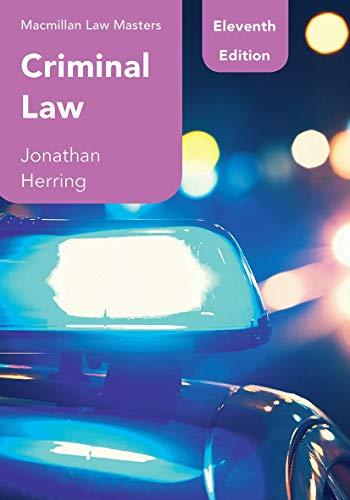Question
TERRORISM AND DEMOCRACY On page 159 of your textbook, White (2012) initiates a discussion about the roots of modern terrorism. During his discussion, White (2012,
TERRORISM AND DEMOCRACY
On page 159 of your textbook, White (2012) initiates a discussion about the roots of modern terrorism. During his discussion, White (2012, p. 162) states "The Enlightenment and the birth of democracy give rise to two paradoxes. The first deals with the relationship between democracy and terrorism. F. Gregory Gause III (2005) points to a variety of studies about this relationship, and he comes to a depressing conclusion.Terrorist attacks occur more frequently in democracies than in countries with any other form of government."
With this statement in mind, please address the following questions:
- Why is it that democracies are more receptive or more favorable to terrorist attacks than theocracies, autocracies, or dictatorship style governments? What specific elements of a democracy allow terrorists or extremists to collaborate, plan, and execute attacks on the very country in which they are operating?
- What specific challenges does this mean to a democratic government? How does democratic government control and mitigate the effects of terrorism without becoming a repressive entity focusing on strictly monitoring and punishing behavior of its citizens?
- Does the fact that democracies are more favorable to terrorism mean that the United States is faced with an endless future of extremist and terrorist attacks? Why or why not?
References:
White, J. R. (2012). Terrorism and homeland security (7th ed). Wadsworth Publishing Company. Belmont, CA
Step by Step Solution
There are 3 Steps involved in it
Step: 1

Get Instant Access to Expert-Tailored Solutions
See step-by-step solutions with expert insights and AI powered tools for academic success
Step: 2

Step: 3

Ace Your Homework with AI
Get the answers you need in no time with our AI-driven, step-by-step assistance
Get Started


